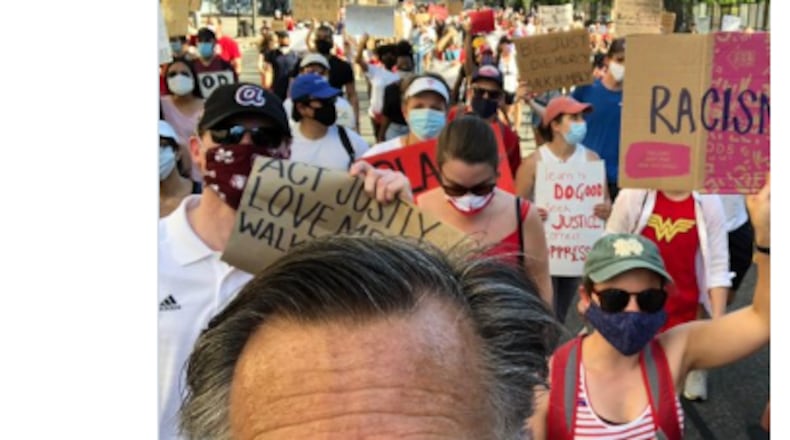A day after thousands of demonstrators in the nation's capital expressed support for George Floyd, the man killed by police in Minneapolis whose death touched off riots and protests nationwide, Sen. Mitt Romney (R-UT) became the first GOP lawmaker to join in outward support for the Black Lives Matter movement, as he marched on Sunday in Washington, D.C.
"Black Lives Matter," Romney stated simply, as he tweeted out a selfie showing him wearing a mask, and marching with others in the nation's capital.
Romney marched to the White House with a group of evangelical Christians, as peaceful demonstrations continued in Washington for yet another day.
"We need many voices against racism and against brutality. We need to stand up and say that Black lives matter," Romney told reporters.
On Saturday, Romney had tweeted out a picture of his father George Romney, marching in civil rights protests outside Detroit in the late 1960's.
"Force alone will not eliminate riots,” Romney quoted his father as saying at the time. “We must eliminate the problems from which they stem."
While some GOP lawmakers have expressed their support for efforts to end police brutality in the wake of George Floyd's death, Romney became the first Republican Senator to take part in any public protest.
Through the weekend, President Trump continued to focus more on the issue of 'law and order' in the streets of America, skirting the issue of police brutality and questions of how police forces treat blacks and other minorities.
“Donald Trump is the worst possible person to lead us through this moment,” said Joe Biden, who was slated to fly to Houston on Monday to meet with Floyd's family.
Meanwhile in Congress, Democrats on Monday will unveil a police reform bill.
The plan would make it easier to prosecute police accused of misconduct, change the 'qualified immunity' legal protections for police against lawsuits, and create a national registry to make it more difficult for officers to get a new job without a new employer knowing about past accusations.
About the Author
The Latest
Featured



